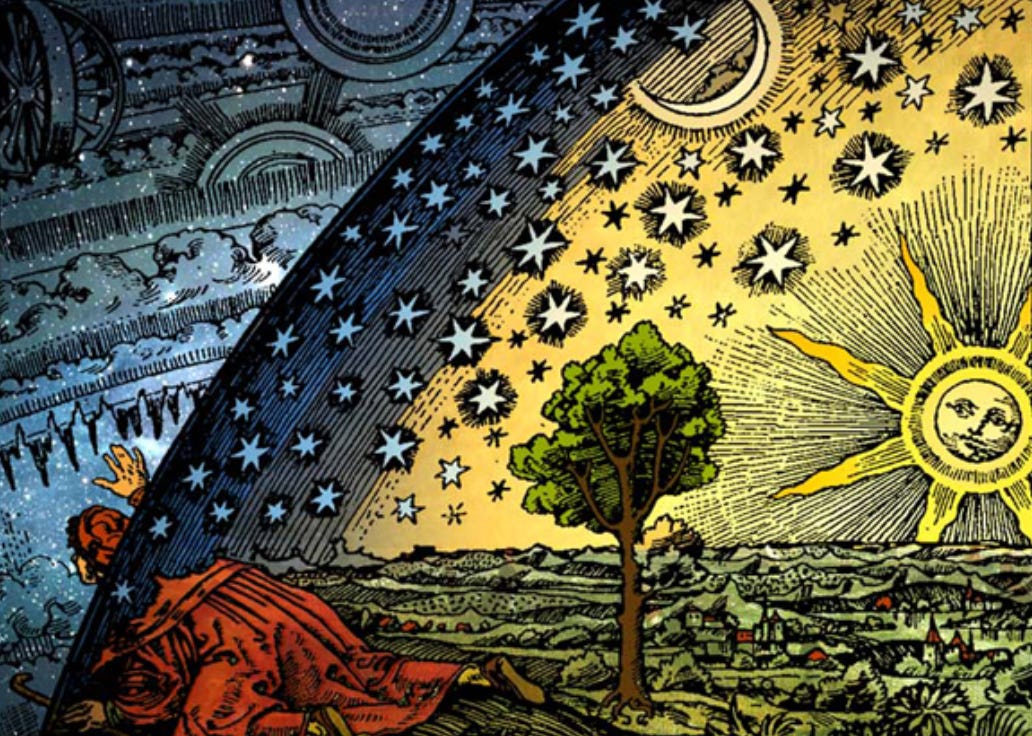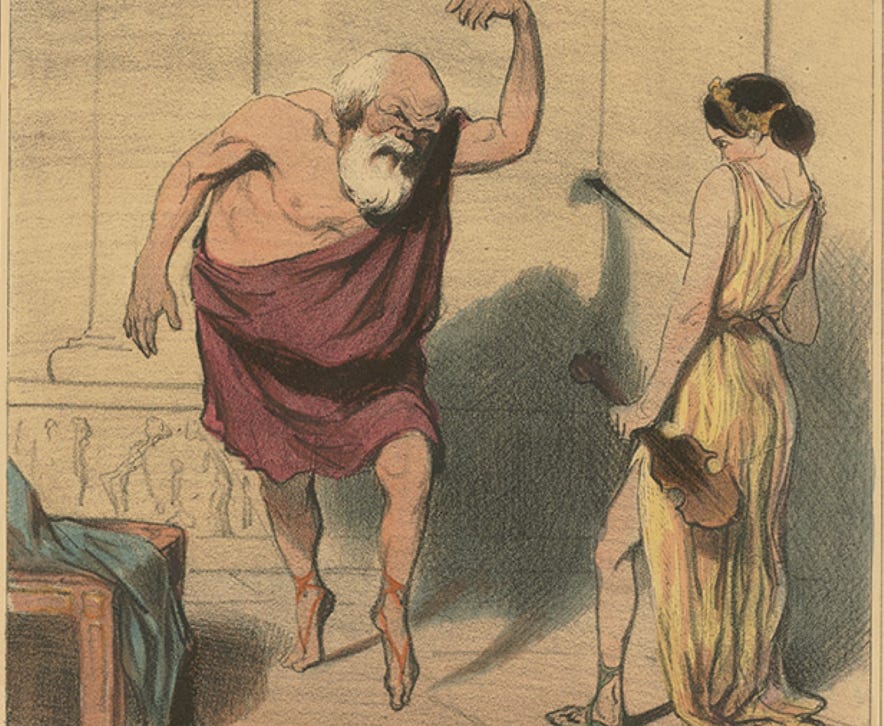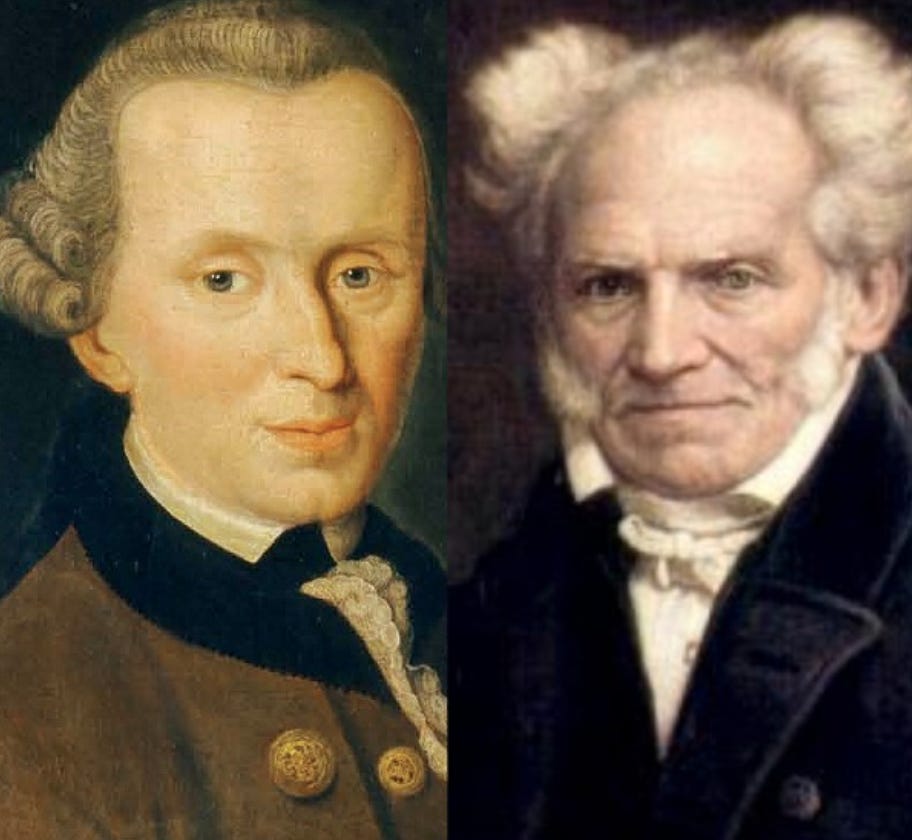Why Nietzsche Believed Rationalism Would Destroy The World
Nietzsche, Socratic Optimism, Alexandrian Culture, And The Destruction Of Culture And Meaning.
Two phrases that you may not have heard before: “Socratic optimism” and “Alexandrian culture”. Nietzsche found both detestable. Spoiler, Nietzsche was not a big fan of Socrates. I will be primarily breaking this essay up into two parts.
In the first part, I will define what Nietzsche calls the ‘theoretical man’, then define what “Socratic optimism” and “Alexandrian culture” are. In the second part, I will focus on why Nietzsche found them so detestable.
The theoretical man is broadly and generally the archetype of the modern man, a citizen of an Alexandrian culture. One who values reason and science above all else. He holds optimism that through science and reason, the universe will be understood and justified. I will touch on the topic of optimism more in-depth later on.
The theoretical man is first introduced explicitly on page 94, section 15 of the Birth of Tragedy(BoT). For Nietzsche, the theoretical man is best exemplified as Socrates. “Socrates is the prototype of the theoretical optimist who, with his faith that the nature of things can be fathomed, ascribes to knowledge and insight the power of a panacea, while understanding error as the evil par excellence”( BoT section 15 pg 97). The theoretical man is the scientist, the logician, the man who values truth and knowledge, and reason above all else. Richard Dawkins and Neil Tyson DeGrasse fit this model in the modern day. The mission of the theoretical man is to make existence appear comprehensible and therefore, justified( BoT section 15 pg 96). The theoretical man is summed up nicely in this quote, “ it(the theoretical man) believes that it can correct the world by knowledge, guide life by science, and actually confine the individual within a limited sphere of solvable problems, from which he can cheerfully say to life: “ I desire you; you are worth knowing” (BoT section 18 page 109).
Here I will introduce and define what Nietzsche means by “Alexandrian culture”. Nietzsche at the beginning of section 18 describes the three types of stimulants of which all cultures are made up. The three stimulants are; the Socratic, the artistic, and the tragic. Nietzsche also uses historical exemplifications for these archetypes. They are, the Alexandrian as the Socratic, the artistic as the Hellenic, and the tragic as the Buddhistic(BoT section 18 pg 110). Nietzsche said that those who feel the burden of existence most profoundly must delude themselves from their burden with one of these stimulants. This is someone who would be categorized as the passive nihilist from my last essay. Nietzsche is claiming here that the people who experience the most existential dread need a sufficient distraction to keep living. The distractions that are available, according to Nietzsche, either come from an Alexandrian culture, a Hellenic culture, or a Buddhistic culture. In contemporary society, we may think of these as the rationalist, the poet/epicurean, and maybe still- the Buddhistic/Stoic.
His claim is that modern culture is predominantly Alexandrian. The Alexandrian culture holds the theoretical man as its ideal, who labors in the name of science to understand the universe. Alexandrian culture is the culture that the theoretical man resides in, the culture that attempts to explain the world through scientific knowledge, and the culture that believes that only through that knowledge can the world be justified. (Nietzsche uses the word justified to mean, ‘worth living in’, or ‘worth existing’)
Now, to define Socratic Optimism, as well as show the relationship between the theoretical man and Socratic optimism. In essence, the theoretical man is or has Socratic optimism. They are not separable. The optimism is stemming from the faith that through science and reason, nature can be understood.
However, most essentially, Socratic optimism is the belief that the theoretical man and the citizens of an Alexandrian culture have, that through science and reason they will be able to understand the universe, justify it, heal it, and correct it.
How this all fits into our modern lives? Nietzsche believes that Socratic optimism and Alexandrian culture lead to many of the problems that society is facing and that they are inherently doomed to fail. This is not to say that Nietzsche believed that the Alexandrian culture should be done away with entirely, but that in excess, it leads to many problems and eventually the destruction of society and nihilism in the individual. We now face the same problem. Overly rationalistic thinking and scientism often lead people to see the world and universe as lacking meaning. Through this path, people, with a lack of intellectual humility, fall prey to nihilism.
A quick outline of how Nietzsche believed we fall into this problem:
Nietzsche finds Socratic optimism and Alexandrian culture problematic because he believes that Alexandrian culture does have problems and that the Socratic optimism that aims to cure the world of these very problems is doomed to fail.
Nietzsche believes this because, according to him, Socratic optimism is founded on faulty premises, which suggest that nature can fully be known by science and through that knowledge, society will be cured of all of its problems and will be justified as a result.
He believes that the Socratic optimism and the Alexandrian culture are based on faulty premises and cannot only not fix the problems of the current society, but will lead to nihilism in the theoretical man once he realizes the limitations of his pursuit and will therefore leave Alexandrian culture in a destructive state.
Nietzsche’s general view on why the Alexandrian culture is problematic is well-expressed on page 113 of BoT. Nietzsche tells us that the Socratic(Alexandrian) culture is now shaken in two directions, one by the fear of its own consequences, which is in reference to negative things happening in Nietzsche’s time ( Possible examples of what might lead Nietzsche to hold this view: slavery, the industrial revolution, the American civil war, existential dread in modern men) and also that it is no longer confident that science will be the final answer for man and for society as it once thought.
A possible explanation as to why Nietzsche thinks that Alexandrian culture and the theoretical man have this problem is that it is impossible to derive values from facts. Facts are the exact kind of knowledge that Alexandrian culture is giving us. I am not sure if Nietzsche had Humes ‘Is-ought’ problem in mind when criticizing Alexandrian culture but they are both getting at this same problem. For it could be a possible explanation that ‘meaning’ for man simply cannot be derived from scientific knowledge and a culture based entirely on this type of knowledge is insufficient to ‘justify’ the world and give man the meaning that he needs to keep on existing.
Nietzsche is making an epistemological claim about how much can actually be known by science. He references Kant and Schopenhauer. “ Kant and Schopenhauer have succeeded in gaining the most difficult victory, the victory over the optimism concealed in the essence of logic-an optimism that is the basis of our culture”..” Kant showed that these really only serve to elevate mere phenomenon..to the position of the sole and highest reality, as it were the innermost and true essence of things, thus making impossible any knowledge of this essence or, in Schopenhauer’s words, lulling the dreamer still more soundly asleep.”(BoT section 18 page 112).
Nietzsche is trying to express that the true essence of fundamental reality is unknowable to science. And because of that, Socratic optimism and the Alexandrian way cannot give us all that we need to give meaning to life. This is where Nietzsche’s ‘theoretical man’ begins to run into problems. For if the theoretical man’s optimism is predicated on faulty premises, the premises that nature can be known and/or that its problems can be cured by scientific knowledge, then that optimism will fail. This is the key problem that Nietzsche is highlighting. Nietzsche’s stance is summed up well in this quote, “ But science, spurred by its powerful illusion, speeds irresistibly toward its limit where its optimism, concealed in the essence of logic, suffers shipwreck.”(BoT section 15 page 97).
He believes science and the Socratic way are just more illusions and that they cannot achieve what it believes they can. And worse yet, not only can they not achieve what they think they can, they, in fact, create massive problems along the way, and when they fully become seen as an illusion, the Alexandrian culture will be destroyed. Applying these lessons to ourselves in the modern world is imperative to fight nihilism and the lack of meaning that pervades modern culture. A balanced perspective between rationalism and subjectivity is needed.
Sources:
Birth Of Tragedy, Friedrich Wilhelm Nietzsche, et al. Basic Writings of Nietzsche. New York, Modern Library, 2000.





